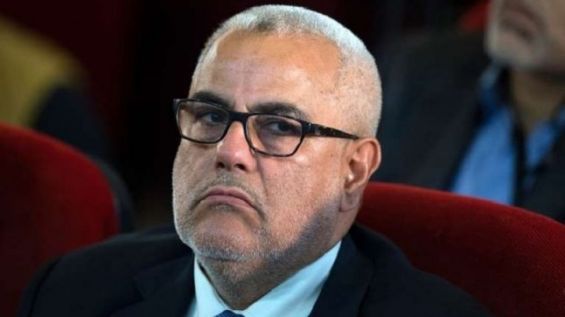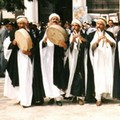During a meeting held by the Justice and Development party, Morocco’s former Prime Minister Abdelilah Benkirane took the opportunity to address several topics. Apart from talking about his retirement, the PJD’s former Secretary-General commented on parliamentary monarchy in the Kingdom.
«I don’t doubt those claiming that we should establish a parliamentary monarchy, but you have to explain to me first what it means to have a king that rules without governing», Benkirane said. «Who is expected to govern in this case ?», he wondered before recalling his term as a Prime Minister.
«When I was heading the government, I said that I would not interfere in the Kingdom’s external relations and that I would support the position of His Majesty the King», he said.
Abdelilah Benkirane referred to the Sahara issue as an example : «Should we let every head of the government implement his own policy ?», he wondered, answering that «it is possible for a Prime Minister to handle this issue».
After this general introduction, PJD’s former Secretary-General criticized the United Arab Emirates of «harassing» his party. He quoted Dahi Khalfan, the former chief of Dubai Police, and Mohammed Dahlan, the former leader of Fatah in Gaza, indicating :
«When they (the United Arab Emirates) invited us to events, I went there because I thought it was part of His Majesty’s policy. Moreover, when the Ould Zeroual march (an anti-PJD demonstration organized on September the 18th, 2016 in Casablanca) took place, their national broadcaster was delighted to report the event as if they were the ones behind it».
PJD-UAE: A love and hate relationship
To the former Prime Minister, his «brother» Saadeddine El Othmani is dealing with the United Arab Emirates in the same way, «because it is the policy of our king». «We cannot oppose it despite their position. When I meet their emir, I greet him and show him respect. That is His Majesty’s policy», he concluded.
This love and hate relationship between the PJD and the United Arab Emirates is an open secret. During the 2016 Moroccan general election campaign, the party slammed Emirati media for speaking about the anti-PJD march. Sources close to the Moroccan political party accused the United Arab Emirates of «interfering in the Moroccan election and inciting people not to vote for PJD».
In fact, authorities in Abu Dhabi were unhappy about the «Arab Spring» which brought Islamists in several Arab countries to power. They are accused of contributing to the fall of Mohamed Morsi’s regime in Egypt and trying to undermine the rise of Ennahda party in Tunisia.
The anti-Muslim brotherhood positions of the UAE were also targeting Moroccan Islamists through the statements of Dahi Khalfan who predicted that the Benkirane government would fall in 2013.





 chargement...
chargement...













